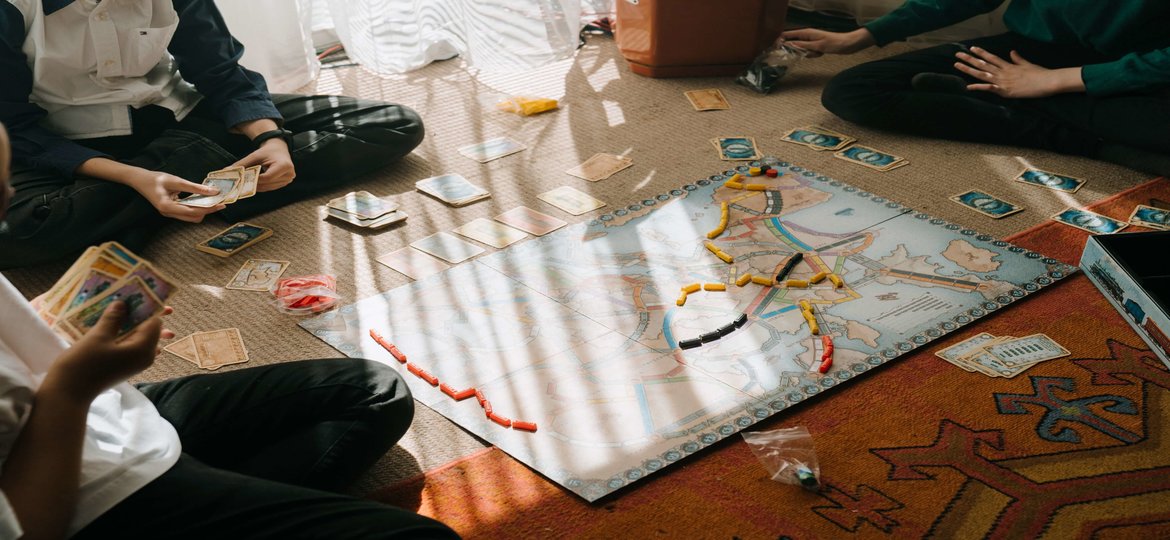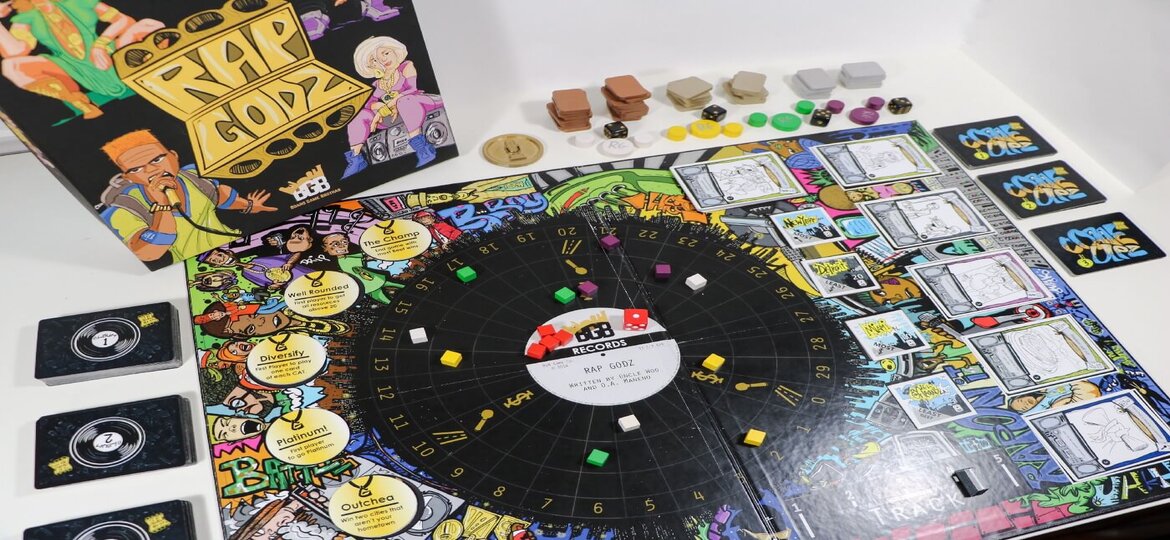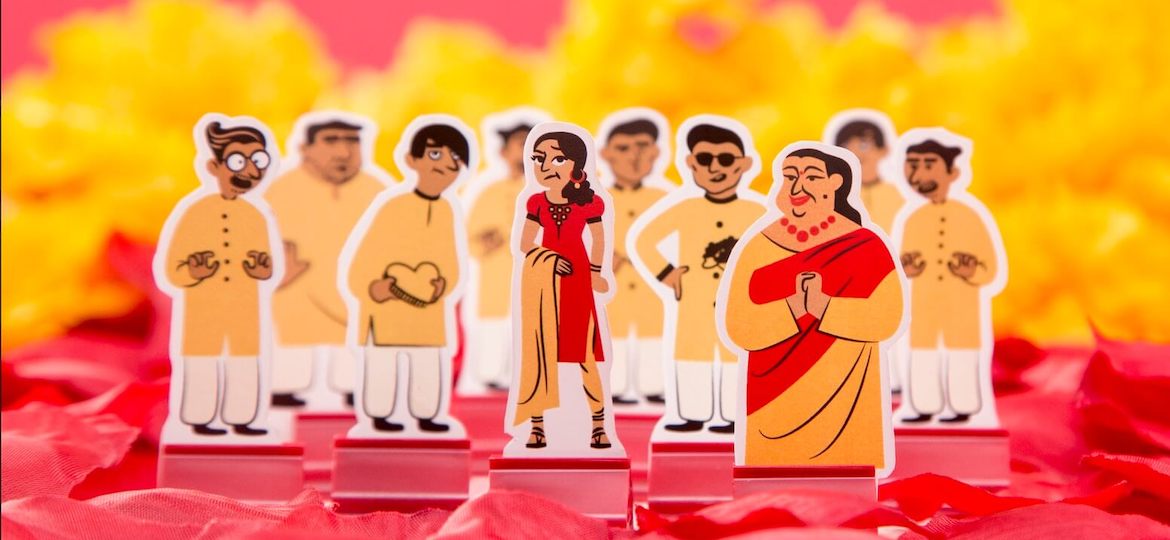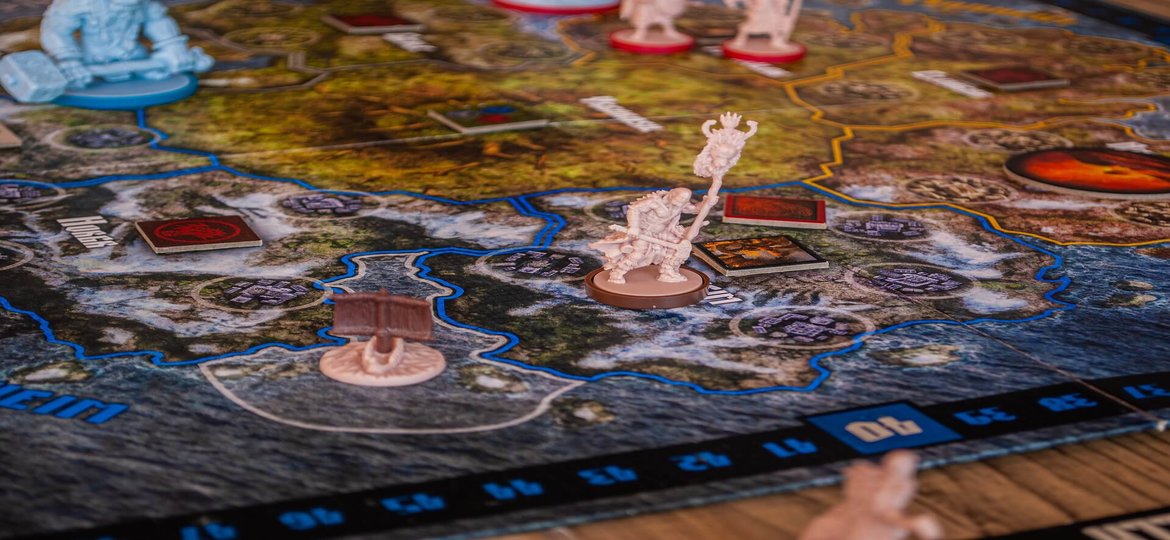These days, we’re confined to our homes because of the coronavirus. That’s forced designers and publishers of tabletop games to think outside their 11×11-inch boxes.
How has COVID-19 impacted production and game design? Are there opportunities to be found for designers during times of crisis?
Trying to make sense of these conundrums are some of the world’s most renowned board game designers. Let’s meet our players… I mean panelists… for this virtual Comic Con @ Home 2020 debate.
- Eric Lang needs little introduction. He is the game director at Cool Mini or Not (CMON), a juggernaut publisher known for many blockbuster titles that went on to become BoardGameGeek top 100 games, such as Blood Rage and Rising Sun.
- Emerson Matsuuchi is a game designer for Nazca Games. His first big hit as a designer was Specter Ops back in 2015, but he really took the industry by storm in 2017 with Century: Spice Road, which since then has grown into a trilogy. Emerson is also a very talented 3D modeler and programmer.
- Sen-Foong Lim is a game designer and psychology professor hosting a livecast about board game design on Facebook called Meeple Syrup. Together with business partner Jay Cormier, he has designed acclaimed board games like Belfort, Junk Art and the splendid underrated 2-player title Akrotiri.
- Elisa Teague is a game designer and writer for card games, board games and RPGs, with 20 years of experience in the industry. She is currently working alongside renowned publishers Renegade Game Studios and Wizkids on Wardlings, an RPG campaign guide set in a magical fantasy world.
- Kathleen Mercury has been teaching kids in middle school how to design games for over a decade. She hosts a podcast called Games in Schools and Libraries.
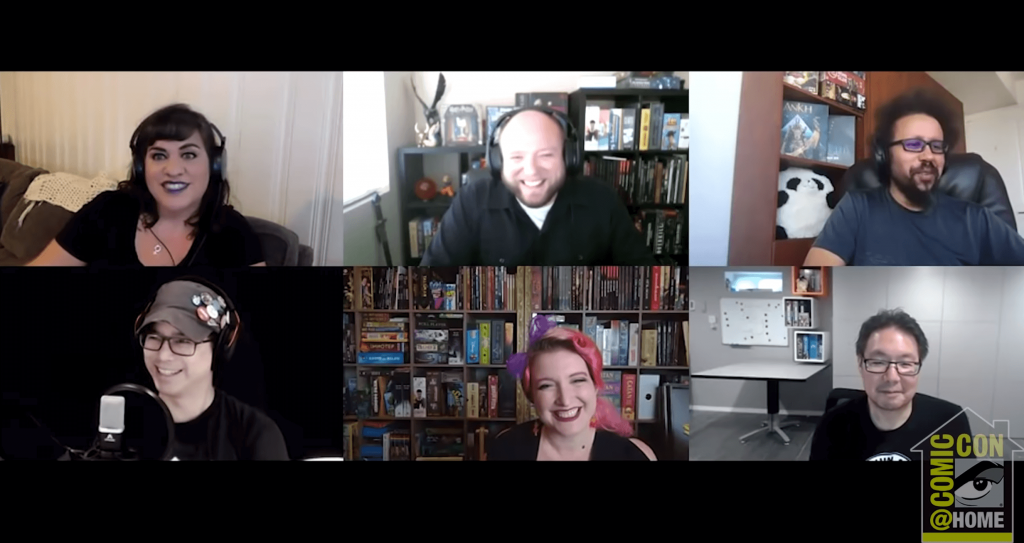
Comic Con @ Home’s “Get It On the Table: Designing Your Tabletop Game” panel.
Digital Tech for Tabletop Games: A Blessing and a Curse
As with all things in life, there’s usually positives and negatives. Being a publisher or a game designer during corona times is no different. While physical board gaming is taking a bit of a beating right now, digital platforms — such as Board Game Arena, Tabletopia, and Tabletop Simulator — are thriving.
“We are testing completely digitally now using Tabletop Simulator,” says Eric Lang. “The challenge is not so much for late stage playtesting which is very data driven, but rather for early stage playtesting, where you need to be able to see the reactions of the people around the table. The feedback you get from that is hard to procure from behind a computer screen.”
“If I lead it, I’m leading them.” —Elisa TeagueClick To TweetElisa Teague adds playtesting is at a standstill since regular testing groups can’t be held in person.
For RPG game design, there are usually fewer components required. Software can roll dice. You can run a scenario easily with video conferencing software such as Zoom.
“It’s hard when you can’t have a face-to-face reaction of watching a group of people play together,” she says. “Usually I will just sit back and not even play. I just watch people go through the rules and components, taking notes of how they work problems out themselves and what I’m missing in my rule set.”
In real life, she can observe first hand the visual cues of players. But that’s impossible over Zoom.
For playtesting of strategic games, you generally want to avoid having to lead your group. “If I lead it, I’m leading them,” Elisa says.
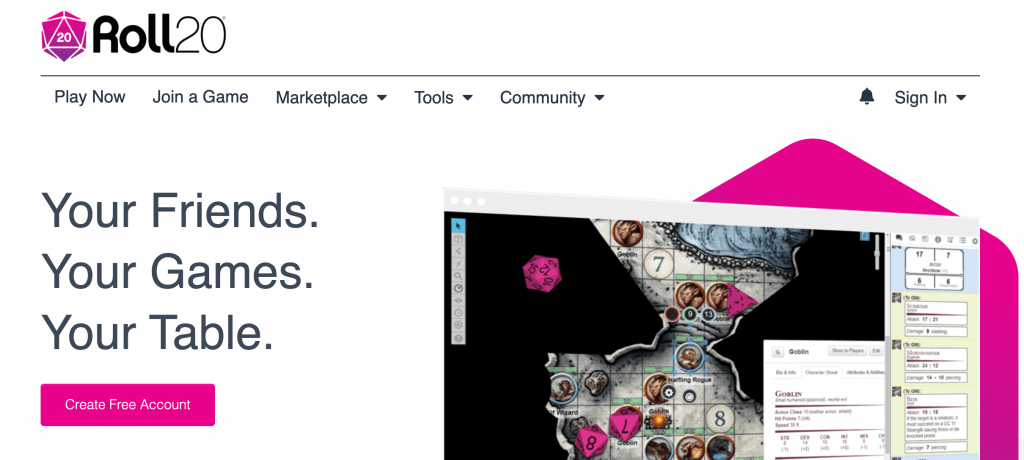
Tabletop has moved online mostly during the Pandemic.
Some Extra Time on Their Hands
One of the advantages of the current pandemic is that a lot of people are home from work with lots of time on their hands.
“In the first few weeks of this whole lockdown I wrote two new RPGs from scratch,” says Sen-Foong Lim. “We could test it because people had nothing else to do except sit on Zoom and play.”
Sen uses Discord a lot to stay organized.
“I can link to the rules and the move set and just copy paste whole charts in there like look-up tables. I’ve actually done more role-playing now because we can’t get together than I do when we can get together,” he laughs.
“I’ve actually done more role-playing now because we can’t get together.” —Sen-Foong LimClick To TweetFirst-Time Designers Find It Hard to Pitch in a Pandemic
The pandemic comes with plenty of free time. That motivates people to finally finish their dream game design. However, getting your foot in the door is more challenging for first-time designers than ever before.
From the publisher side, Eric spends a lot of time actively seeking design talent outside of his network. While digital has made connecting to this new talent easier, there’s too many of them banging on the door.
All of the pitches are starting to blend into each other, Eric says.
“In theory, [the] digital [age] should have democratized access to publishers because you don’t have to spend money to go to conventions,” Eric states. “But that democratization has actually led to a much lower signal-to-noise ratio. When you don’t know them and can’t see them in person, all signals come in at the same string.”
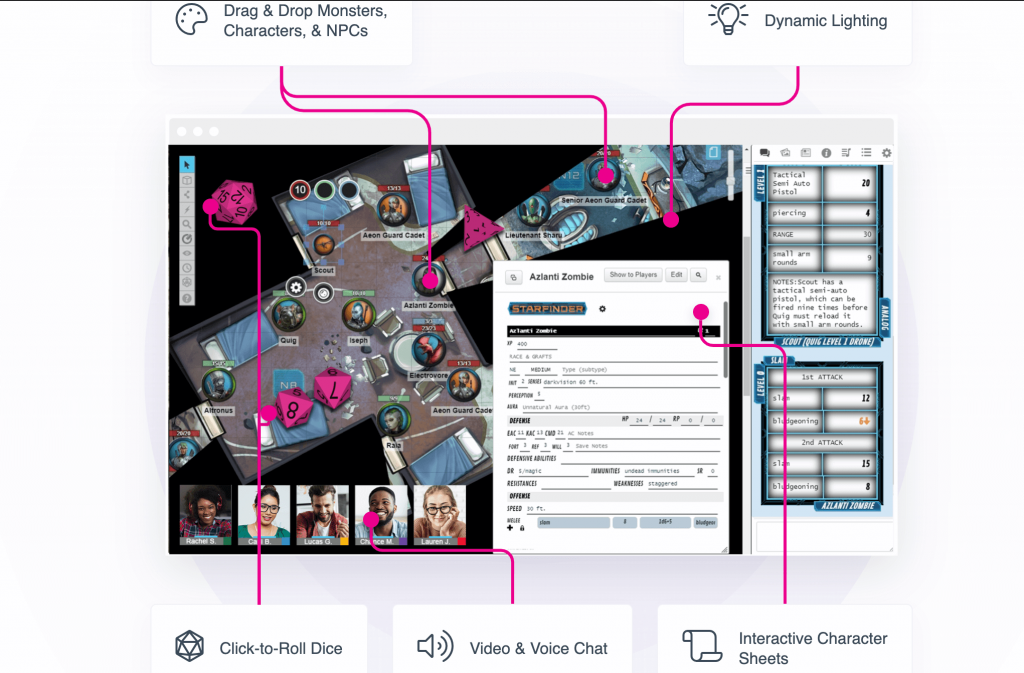
Playing RPGs and other tabletop games online has become more popular during the pandemic. (Photo Credit: Roll20)
A Business of Relationships
According to Kathleen, the board gaming industry is a business of relationships. She sees even bigger challenges for newcomers.
“Even if your email contains an amazing game with a great sell sheet, it’s really hard to stand out in a long line of submissions,” she says.
She adds that the only way to determine whether the person is somebody you would want to work with, is through face-to-face pitches.
Elisa says deals come up organically through hanging out, not formal pitches.
“That’s why going to conventions is so important,” she says. “So is getting your name out there and just being a member of the game design community. It can happen digitally but it’s rare. So times are pretty tough right now.”
But it’s not all doom and gloom. With struggle also comes opportunity.
New Opportunities Still Exist Tho’
Production of physical copies has slowed. Now, many publishers are turning to print-and-play (PnP) versions of their games on social media.
And that’s opened the door for other designers in countries with limited access to large-batch printing production.
Sen says he’s recently agreed to work with a team from Indonesia on a PnP game.
Some publishers are even setting up online pitch sessions. This is a great way for new game designers to practice their pitches. That way they’ll be prepared for when the industry eventually goes back to closing deals in person.
Elisa clarifies:
The majority of new game designers don’t know how to construct a proper pitch. We’ve done panels in the past where we invited people to pitch to us, and then in front of an audience we tell them how to reframe their pitch. New designers need to put themselves out there like that in order to grow and get constructive feedback on how to pitch correctly.
In Part 2 of this debate, our panelists discuss their actual game design processes: theme vs mechanics, working with IPs, and the future of the gaming industry.
Another year, another SDCC! Even though it didn’t look exactly like Comic Con, how did you spend #ComicConatHome? #browngeeks
— Brown Geeks (@AvaazMedia_) July 29, 2020

